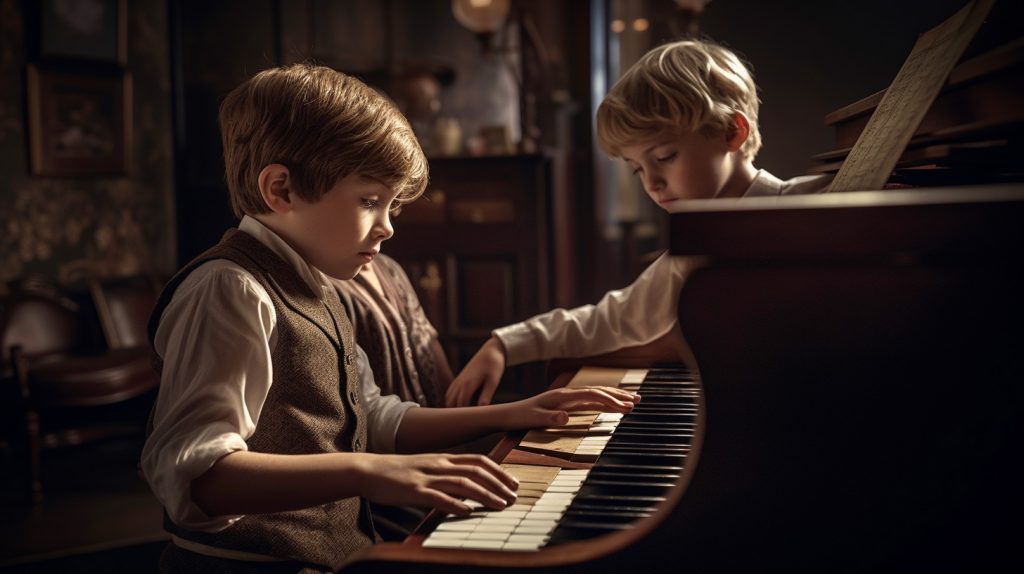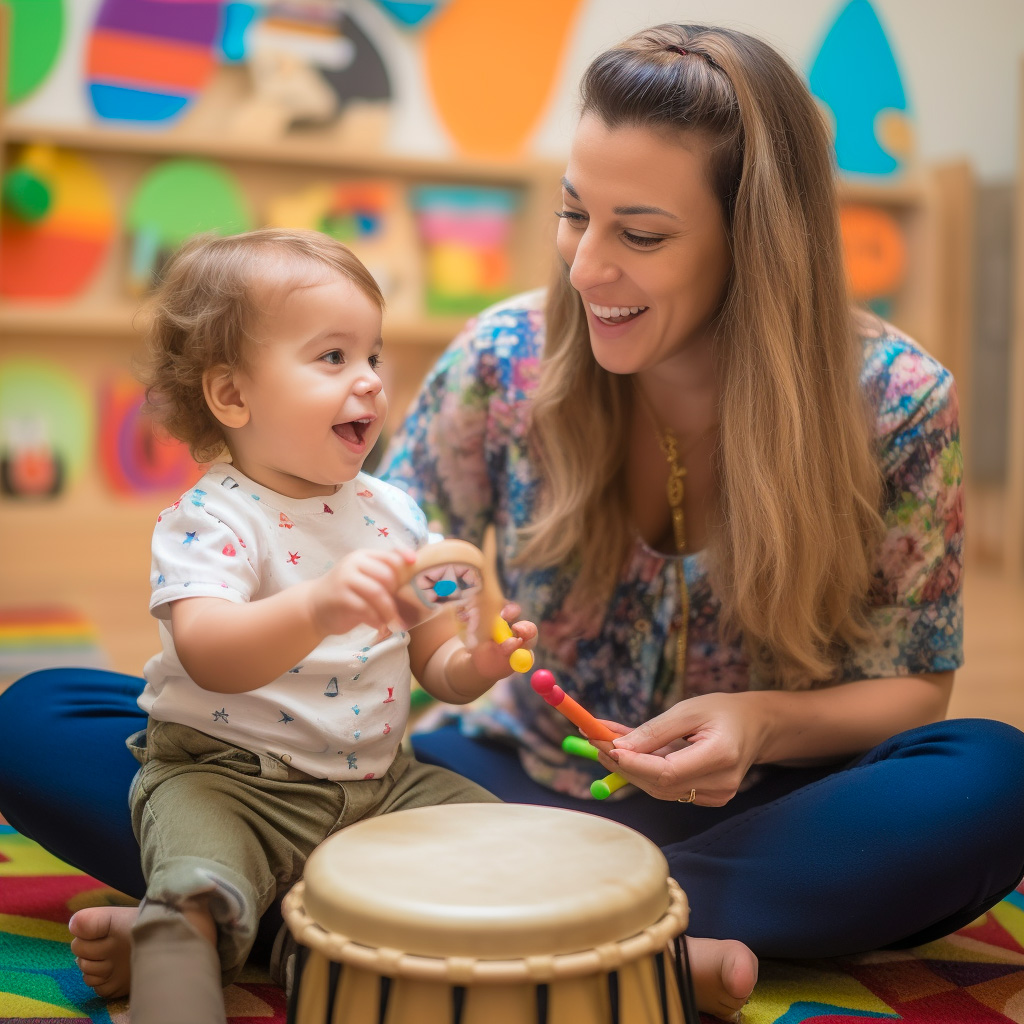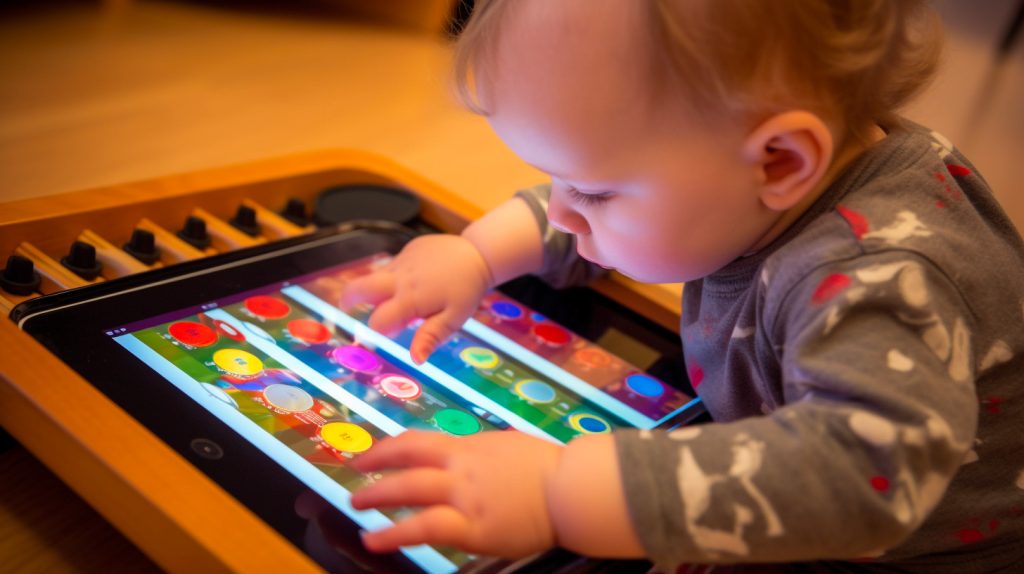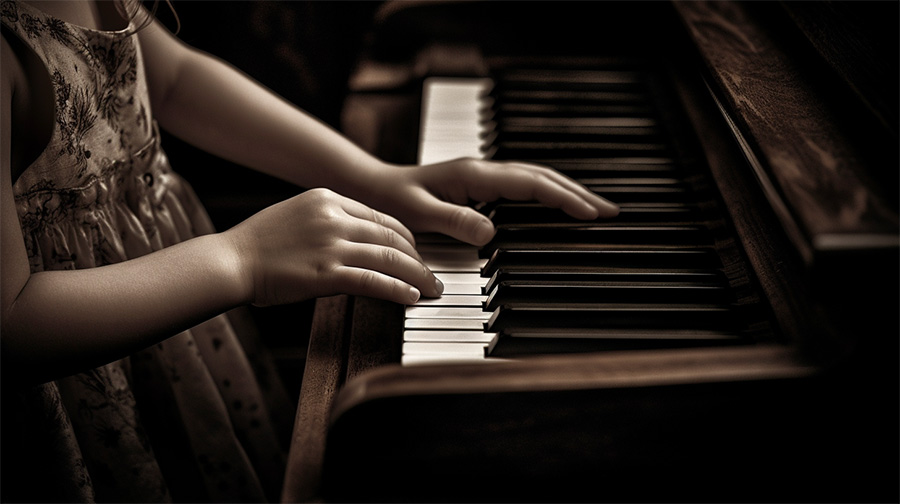Music indeed forms a striking element of our diverse cultural spectrum. Drawing us in with its timeless allure, it unifies us across boundaries and generations. As we delve into the rich chronicles of Music Lessons for Toddlers, we promise to guide you through an enlightening journey that explores the origins and evolution of music in human history. Our excursion will uncover how this universal language, deeply rooted in mankind’s past, has not only shaped societies and civilizations but also continues to captivate hearts, while retaining its charm across the ages.
Music Lessons for Toddlers: Where It All Started
Music, like language, is a skill that is better nurtured from an early age. Music appreciation, or the understanding and love for music, is no different. However, the concept of imparting music lessons to toddlers dates back to ancient times. Civilizations such as the Greeks and Romans understood the importance of music as part of holistic development, laying the groundwork for what we understand as music education today.
The Greeks, in particular, were known for their systematic approach to music education. Their curriculum included music as an essential component, and children were introduced to it at a young age. This educational model set the stage for the future understanding of music appreciation among toddlers.
The Middle Ages: Transition in Musical Trends
During the Middle Ages, the church played a significant role in fostering music education and appreciation. Sacred hymns and chants became the medium of teaching music. This period also saw the emergence of the Guild system. Musicians, singers, and composers formed Guilds where the skills and techniques of music were shared, taught, and learned.
Renaissance and Enlightenment: A Musical Awakening

The Renaissance era marked the resurgence of cultural and artistic expressions, and music was no exception. Music lessons became a part of courtly education. The period also marked the advent of public concerts, contributing significantly to the increase in music appreciation.
The Age of Enlightenment witnessed a shift in the perspective of music education. Jean-Jacques Rousseau and John Locke, among others, began emphasizing the importance of sensory experiences, including auditory, for child development. They promoted the idea of early exposure to music, thereby sowing the seeds of music appreciation for toddlers.
Modern Music Appreciation: Influences and Evolution

The 20th century was a transformative era for music education and appreciation. Pioneers like Zoltán Kodály, Carl Orff, and Shinichi Suzuki introduced innovative approaches that made music education more accessible and enjoyable, especially for children.
Kodály’s method, for instance, proposed that musical training should start as early as possible, even before a child could read or write. Orff’s Schulwerk and Suzuki’s method also advocated a similar approach, emphasizing on learning by doing and by listening, respectively. Their ideas reinforced the understanding of music appreciation and provided an impetus to music education worldwide.
The Future of Music Appreciation: The Digital Age and Beyond

The digital revolution has significantly impacted music appreciation and the way it’s taught. Online music lessons, music apps, and digital learning tools have created an interactive and engaging learning environment for children. This shift has made music education more flexible and adaptable, accommodating the needs of every learner.
However, despite these advancements, the essence of traditional music education remains irreplaceable. As we delve into the future, it becomes even more important to strike a balance between innovation and tradition.
Fame Music Academy: Fostering the Love for Music
At the heart of Benoni, Gauteng, you’ll find a sanctuary for music lovers – the Fame Music Academy. Our academy is more than just a music school. We believe in cultivating a deep understanding and appreciation for music from an early age.
At Fame Music Academy, our dedicated team of experienced educators guides each child on their unique musical journey. We believe in nurturing their innate talents and fostering a lifelong love for music. Our comprehensive programs include music lessons specifically designed for toddlers, allowing them to explore the vast world of music at their own pace.
We understand that every child is different, and we adapt our teaching methods to cater to their individual needs. From classical music to contemporary tunes, our lessons cover a wide array of genres, offering a holistic music learning experience.
Join us at Fame Music Academy and embark on an exciting and enriching musical journey. Nurture the seeds of music appreciation in your child, and let us help them grow into confident, creative, and compassionate individuals.

